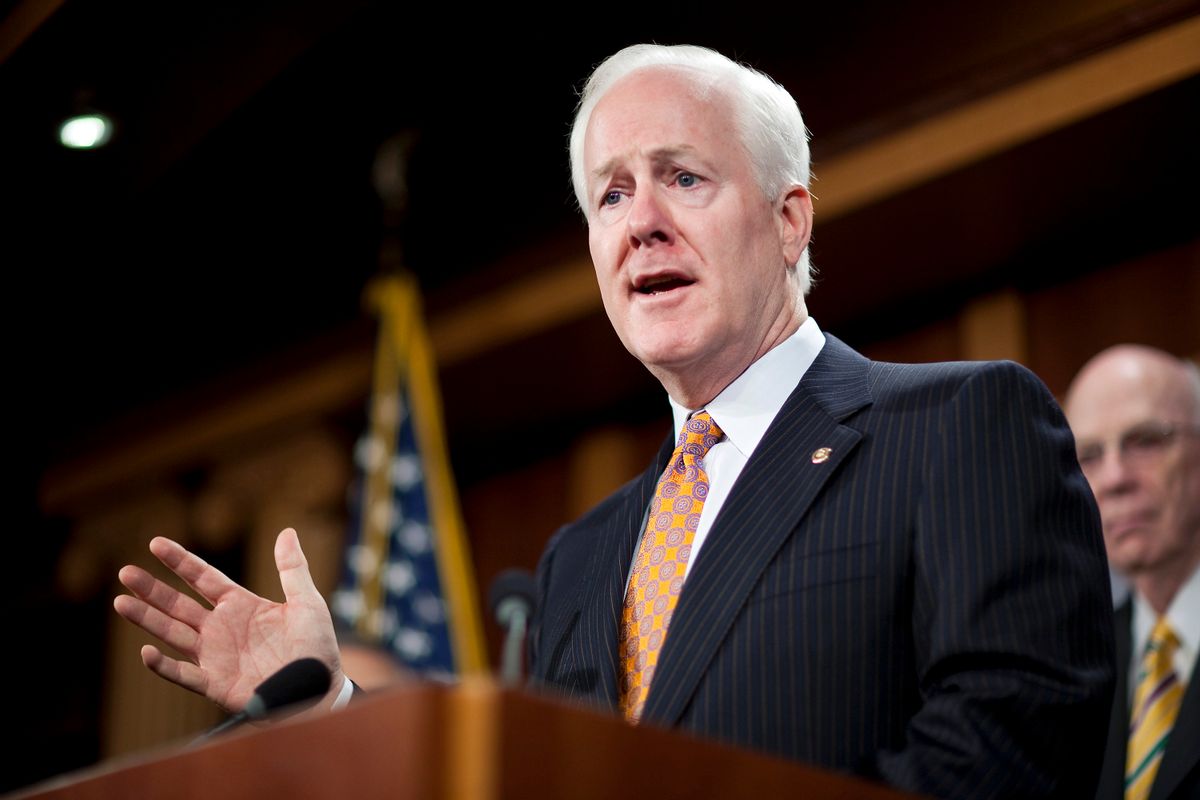Baltimore police this week arrested two men on human trafficking charges, according to a report from the Baltimore Sun. The two men charged, 25-year-old Matt Brown and 30-year-old Anthony Leon Eley Jr., were arrested Tuesday after they brought three underage girls to an arranged meeting at a hotel with an undercover vice detective. The three girls were 14, 16 and 17, according to the Sun.
The arrests were made against a backdrop of congressional dysfunction over a once bipartisan anti-trafficking bill. Senate Democrats, also on Tuesday, blocked the Justice for Victims of Trafficking Act from advancing because of an antiabortion amendment that would expand the scope of the Hyde Amendment.
The measure may have stalled for debate in recent weeks, but further consideration of its approach to human trafficking is exactly what’s needed, many advocates say. As Emily Crockett reported at RH Reality Check this week, while most of the media reports on the measure focused on the divide over the abortion language, very little consideration was given to the actual content of the bill, which organizations like the Urban Justice Center’s Sex Workers Project have criticized as too focused on law enforcement and too little on the needs of victims:
The JVTA has become “a stone soup of trafficking provisions,” Kate D’Adamo, national policy advocate at the Urban Justice Center’s Sex Workers Project, told RH Reality Check. [...]
There are a few good elements, D’Adamo said. The JVTA provides for a federal advisory council made up of trafficking survivors, and it expands the FBI’s “Innocence Lost” mandate to include child labor trafficking as well as sex trafficking. D’Adamo said it’s “shocking” that the FBI hasn’t already done that, given how often minors face labor exploitation.
Unfortunately, D’Adamo said, these provisions are tacked on to a “rotten apple” of a bill that focuses too much on criminalization and too little on the needs of survivors.
Several provisions in the JVTA “prioritize the needs of the state, prosecution, and law enforcement over the needs of people who have experienced trafficking,” Alix Lutnick, senior research scientist with the Urban Health Program at RTI International, told RH Reality Checkin an email. “History has shown that it is not possible to prosecute or legislate our way out of this social issue.”
The fate of the anti-trafficking measure remains unclear, but as the debate in Congress continues, advocates like D'Adamo have urged lawmakers to consider policies to address the conditions that make people vulnerable to trafficking in the first place.
This is where much of the rhetoric on trafficking, particularly among Republicans pushing sequestration-level cuts to vital social programs, rings incredibly hollow. During a Tuesday debate, the bill's Republican sponsor, Texas Sen. Jon Cornyn, asked Democrats who oppose the bill to set aside their objections over the abortion amendment for the greater good. "Why is it that all of a sudden [the abortion amendment] becomes objectionable on this legislation when you care, and I care, so passionately about getting help for these victims," Cornyn asked California Sen. Dianne Feinstein.
Feinstein responded that denying victims access to a full range of reproductive health options results in "enormous harm being done."
But caring passionately about getting help for victims is not a matter for a single bill. Congress’ punting on the measure has been decried as abandoning victims, but the same could be said for derailing immigration reform and and slashing funds for essential services. Poverty, vulnerability to detention and deportation, lack of access to medical care, homelessness, anti-LGBTQ discrimination and abuse make people vulnerable to labor and sex trafficking. The issue does not exist in a vacuum.
And yet a Congress that cares "so passionately" about trafficking continues to neglect the issues that advocates say are essential to supporting victims. A recent example lies in the House budget proposal. The plan introduced this week calls for $1 trillion in unspecified domestic cuts, and would slash funding for Medicaid, the Supplemental Nutrition Assistance Program and tax credits that aid low-income workers. The cuts threaten to further marginalized people who are already struggling to survive.
Funding for specific victim-centered programs and policy remains essential (some recommendations for alternative approaches for policymakers, law enforcement and social service organizations can be found here), but isolating the economic and social needs of victims of trafficking from other means of support erases the real scope of the issue and the basic rights of the people affected.
“We really need to think about our priorities,” D’Adamo told RH Reality Check. “Do we want to lock up people based on fake stings, or do we want to actually fund the resources that keep people from getting into exploitative situations?”

Shares